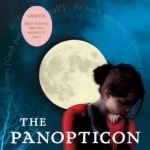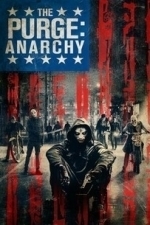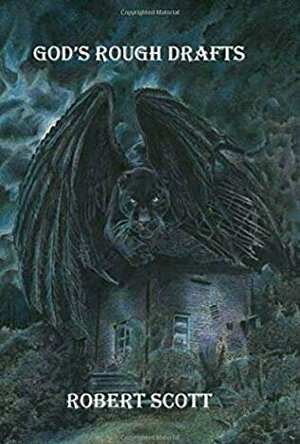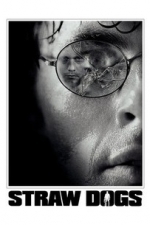
Diabetes Research and Clinical Practice
Medical and Magazines & Newspapers
App
Diabetes Research and Clinical Practice Official Journal of the International Diabetes Federation ...
Eilidh G Clark (177 KP) rated The Panopticon in Books
May 13, 2017
At the beginning of the novel, the fifteen-year old Anais is governed by the state. In contemporary British society, a child under the age of sixteen, regardless of her social situation is, by law, governed by an adult/s. Anais has lived her life in the care system with the exception of a short period in which she lived with an adopted mother. It is for this reason that she is able to see society from outside of the family unit. By creating the motherless child, Fagan presents Anais as the ‘other’ from both a societal perspective- ‘communities dinnae like no-ones,’ and from the viewpoint of the protagonist, ‘What they really want is me dead,’ (TP, p.23). Without a family, and through a lack of legitimate information regarding her birth mother, Anais believes that she was created in a lab:
I’M AN experiment. I always have been, It’s a given, a liberty, a fact. They watch me. Not just in school or social-work reviews, courts or police cells – they watch everywhere. […] They’re there when I stare too long or too clearly, without flinching. […] They watch me, I know it, and I can’t find anywhere any more – where they can’t see, (TP, Prologue).
Note that in the above quotation, the protagonist describes her assumed identity as a ‘liberty’. Liberty, in this case, means freedom from the oppressive nature of the family. Although Anais desires the nurturing aspect of the family, ‘I just want my mum,’ (Tp, p.269), her lack of family exposes her to the nature of contemporary society as a constant monitoring of civilians. In the above quotation, the repetition of ‘they’ suggests that she feels outside of the norm. The most important aspect of the above quote however, is that it is told from the protagonist’s thoughts. While Fagan gives Anais a certain amount of autonomy through both the first-person narrator, and the vernacular, the reliability of the narrator is increased by presenting the characters inner thoughts. While this limited autonomy is important, full autonomy is restricted by age. Bever suggests that ‘the capacity for individuals to become autonomous seems radically dependent on the contingent historical circumstances and societies into which they are born. Anais’ awareness of herself as the ‘other’ allows her an insight into the oppressive role of society, which is normally hindered in childhood due to the role of the family and it’s teaching of norms and values.
The sense of otherness can also be looked at in regard to Scotland and its role within the UK. The UK is a family of four countries under one state. Regardless of Scotland’s devolution, it has still to comply with a large amount of UK policies. Scotland has different values and goals to that of the UK making it ‘other’. With a different cultural identity to its neighbours, many Scottish citizens are seeking independence to protect its dwindling identity, whilst for others, independence is political.
Anais’ awareness of social control causes her a feeling of shrinking. This, according to her social workers is an identity problem:
Fifty odd moves, three different names, born in a nuthouse to a nobody that was never seen again. Identity problem? I dinnae have an identity problem – I dinnae have an identity, (TP, p.99).
Anais’ reaction in the above statement describes her lack of knowledge of her ancestry. I would argue that her identity is forced upon her from the fifty-one times that she has moved home, the care system, the solitary time in which she was adopted, the relationships she has had - both female and male, her friends but more importantly, from the unreliable account of her birth from the monk in the metal institution. The lack of family does not alter the fact that she is alive, and that all the fragments of her past make up an identity. For Anais, ‘Families are overrated […] ‘I umnay fooled. Not by families,’(TP, p.63-64). Like Anais, Scotland’s identity is ambiguous. Independence will allow Scotland political autonomy, however, within a global economy, Scotland still has limited autonomy. As culturally ‘other’ however, Scotland has already achieved autonomy with or without a state through its language, its people and its traditions.
Fagan demonstrates the difficulty of total autonomy though Anais and the birthday game, a game in which she creates her own identity. When she turns sixteen years of age, Anais is free from societal care and flees from her imprisonment, ‘I am Frances Jones from Paris. I am not a face on a missing-person poster, I am not a number or a statistic in a file. I have no-one watching me, […] I−begin today,’ (TP, p.323-324). ‘I’ suggests singularity and is still opposite to ‘them’ or ‘we’. Autonomy is therefore, ambiguous; Anais is still living within the same system under a false identity, she is therefore, segregated from everyone that she knows. Moreover, by changing Anais’ name to a name that ‘means freedom.’ (TP, p.323), Fagan is pointing out the difference between freedom and autonomy. Freedom is an emotive word, and there are two concepts of freedom – freedom from, which in Anais’ situation means freedom from the system of observation. Freedom to, however, is more problematic as Anais can never be free from the neoliberal system of rules and law – as Scotland would see in the case of independence. I would therefore conclude that Anais/Scotland has always has limited autonomy through cultural identity and history. I believe autonomy can only reside within the system through cultural and individual imagination and not out with it.
What does this mean for Scotland? If Scotland is part of the global community, can it become an autonomous nation? Is there a solution or should Anais/Scotland accept that cultural autonomy is imagined or self-contained. Can a collective identity and imagination change the political system? Finally, can culture survive without independence?
Bibliography
Crupp, Tyler, ‘Autonomy and Contemporary Political Theory’, in Encyclopaedia of Political Theory, ed. Mark Bevor (London: Sage Publications, 2010)
Fagan, Jenni, The Panopticon (London: Windmill Books, 2013), p.6.
Windmill Books. (2013). Granta Best Young British Novelist Jenni Fagan, . accessed 22 November 2015. Published on Apr 16, 2013
Gareth von Kallenbach (980 KP) rated Friended To Death (2014) in Movies
Aug 6, 2019
Ryan Hansen (Zach McGowan, Veronica Mars) is a terrific actor, and he plays the perfect narcissistic jerk. As Michael Harris, he’s unsympathetic to everyone he knows, including his new mate Emil (Zach McGowan, Shameless) whom he treats poorly.
Harris is more obsessive with telling his Facebook friends what is going on in his day-to-day life. But when he gets fired from his job as a traffic cop, just what does he do next? He definitely does not go crying to his mom about it. Instead, he hatches a plot to fake his death (with the help of Emil) and look online to see who will miss him.
No one. This movie is not about saying how terrible and unsympathetic people are. Instead, it reveals that one can not treat social media as the end all be all of how relationships are defined. The screenplay is well thought out to show a hyperbole of extremes. Harris is more obsessed with what is said online than in person. At the same time, Harris does not realize that Emil is helping him despite his many reservations. He does not realize that he does have a friend who is doing his best to pull that stick out of Harris’ ass, but the further in it goes, more problems arises.
However, social media has its uses. It has a purpose in the world of business, but in society, that’s another question. When Harris uses it as his lifeblood and measure of his worth, maybe what he needs is a reality check (with perhaps a sociologist/psychologist to treat him).
The underlying themes of what this film examines is great, but sadly the execution is hit and miss. Unless viewers can actually care for the protagonist, the reason to continue watching will depend on either wanting to see how Harris’ life will pan out or wondering who the comely women in red (Sarah Smick) is involved in this plot. As Sylvie, this woman has a beef to settle with Harris, and to watch how that pans out is almost as nutty as watching an episode of MadTV. This subplot actually carries this movie a lot more, and it has all the meat to make watching this movie all the more interesting.

Mom.life — pregnancy & baby
Medical and Health & Fitness
App
The app for modern moms. A community of moms who chat, laugh, brag, vent, cry and support each...

Holiday Destination by Nadine Shah
Album Watch
For most of us, 2016 was a tumultuous and ugly year - one steeped in political chaos and an air of...
rock pop
Gareth von Kallenbach (980 KP) rated The Purge: Anarchy (2014) in Movies
Jun 19, 2019
The film was made for less than $4 million and went on to become a surprise hit which naturally gave rise to sequel plans.
“The Purge: Anarchy” picks up a year later shortly before the annual Purge commences. The story follows three main groups of people who are preparing for the pending evening in Los Angeles.
Eva, (Carmen Ejogo), is a single mom who works as a waitress when she is not caring for her daughter and father, Shane and Liz a coupling facing a possible separation, ( Zach Gilford, Kiele Sanchez), and a mysterious man known as Sargent (Frank Grillo).
Although strangers at the start of the evening, fate brings them all together on an evening where not everyone can be trusted as people can turn on one another over long standing grudges or simply to ‘free the beast” as they call it citing their right to do so as granted by the new founding fathers.
The streets have become a battlefield as the carnage builds up and people locked in their buildings soon find themselves under attack from black armor clad shock troops supported by chain gun equipped semi-trailers.
The main characters of the film must work with one another to stay alive as Sergeant as desperate need of a car to replace the one he lost saving his companions, but to the others he is a dangerous wildcard that they are not sure can be trusted.
As the group moves through the streets looking for safety, danger is all around them and as they evening progresses they learn more and more about the Purge and who in society benefits the most from this annual event.
With death a constant companion, the group must survive against all odds in a world gone mad for 12 hours and with limited options, they must take on the deadliest threats ever assembled for The Purge.
The film is a rare sequel that is actually better than the original. The increased budget shows as the ability to set the story in a city rather than a single home has allowed a more diverse cast of characters, motivations, and scenarios to be presented.
Aside from the solid mix of action and suspense, I enjoyed the fact that the characters came across as real people rather than stereotypical fodder for films of this type. While there is not tons of depth given to them, we are given enough information to understand their motivations and find a reason to care for them.
The film also takes on some very touchy subjects such as social injustices, the needs of the poor vs the seemingly uncaring attitudes of the wealthy and how laws seem to be made often to appease only the rich and powerful at the expense of everyone else.
Taking on such difficult subject matter without becoming overly preachy was a strong point of the film as it not only entertained but raised some very good questions and social commentary while allowing the audience to make up their own minds.
This reminded me in many ways of the original Star Trek series as they were pioneers in taking on topics that the network censors would not allow by hiding it in the cloak of fantasy. The powers that be had little knowledge of what was being presented but those who did watch the show clearly got the message.
This was evident in the film when the tables turned on a sadistic and elite socialite which resulted in loud cheers and applause from the audience.
There has been talk that the next film in the series may be a prequel and deal with the original Purge and how it came to be. I for one would love to see more as the nature of the premise gives rise to so many stories and scenarios in one night alone, and the fact that the Purge is an annual event, and then perhaps we will see films in this series on a regular basis. If they keep up the quality of this one, then I say bring them on.
http://sknr.net/2014/07/18/the-purge-anarchy/
Phil Leader (619 KP) rated God's Rough Drafts in Books
Nov 29, 2019
And so society has divided into those who change body parts at a whim, and those who provide them. The gap between the 'haves' and the 'have nots' becomes even wider and even more literal. But a few, a very very tiny few, discover that if they have just the right combination of parts then something happens, some sort of synchronicity, and they gain some sort of new ability.
Fallon is one such special person who finds her world turned upside down when she is framed for a crime and sent to a juvenile prison. Escaping with new found friends Danny and Emma, they soon find that being pursued by the law is the least of their problems.
This novel covers a lot of ground. At its heart is a thrilling chase but around this Scott has woven threads of social commentary, friendship, self-discovery and the dangers of treating people as commodities. These are characters you will care about as they struggle to overcome every obstacle and make some disturbing discoveries along the way. The vision of the future that is painted is all too real and possible but not one that seems very palatable, except to the people at the very top.
One last notable feature is that each chapter starts with a character narrating and filling in some of the gaps. This exposition is wonderfully self-aware, tongue in cheek and fourth wall breaking. I found it was perfectly juxtaposed to the main narrative.
This is a really good book. Dark, charming, forboding, sharp, witty and suspenseful in equal measure. Is it a must read? It most certainly is
Gareth von Kallenbach (980 KP) rated Straw Dogs (2011) in Movies
Aug 7, 2019
A remake of the 1971 thriller classic of the same name, “Straw Dogs” has lost a lot of its appeal and logic with time. It still has gory moments and the plot is very similar to the original but many of the base thrills have been lost in the move to a present day setting.
This film asks the viewers to suspend disbelief, ignore a number of unfinished back-stories, and stand behind characters who are not engaging or believable. Details, both big and small miss the mark. James Marsdon is incorrectly suited as the shy bumbling academic. The house is a seeming fortress for no apparent reason. The side stories, interesting detractions from the overly built tension between the two leading males, are left unresolved.
Additionally, the themes are awkward and incomplete. There are literary throwbacks and some blatant social commentary but all of the film’s depth is lost on an audience who has no reason to care. Viewers will be preoccupied wondering what the point of the film is.
Sure, the story is engrossing and it does force self-analysis, but the modern adaptation would have benefitted from serious editorial cuts. Had the film been completed in a quarter of the time it might have actually managed to be thrilling!
Unbalanced, vapid, and pointless as a thriller “Straw Dogs” falls prey to the unnecessary remake trap. For a real psychological thrill it would be better to opt for the original.
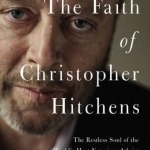
The Faith of Christopher Hitchens: The Restless Soul of the World's Most Notorious Atheist
Book
At the time of his death, Christopher Hitchens was the most notorious atheist in the world. And yet,...
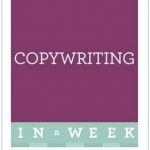
Copywriting in a Week: Be a Great Copywriter in Seven Simple Steps
Book
Great copywriting just got easier It's strange to think that there was a time when only the...
